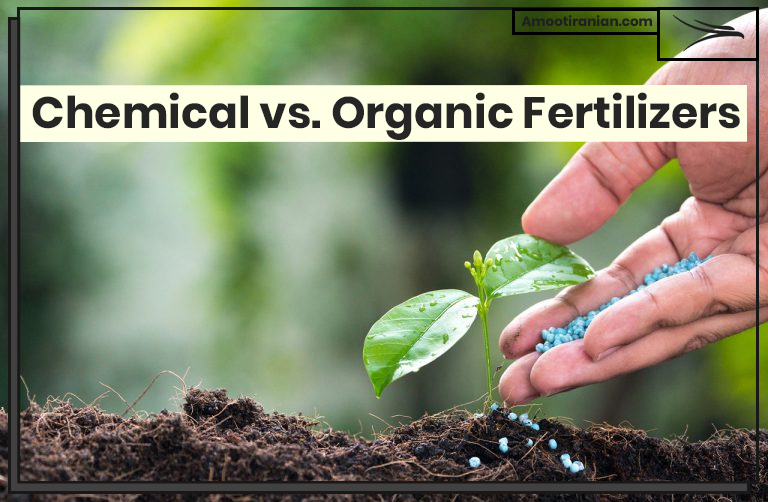.
Is Chemical Fertilizer Better Than Organic Fertilizer?
.
What is the advantage and disadvantage of organic and chemical fertilizer?
.
Chemical and organic fertilizers differ in composition, effects on soil, and impact on the environment:
.
- Composition: Chemical fertilizers are synthesized from mineral or inorganic compounds, while organic fertilizers are derived from plant and animal materials.
- Effects on soil: Chemical fertilizers provide quick, but short-lived, nutrition to plants, leading to high initial growth but long-term soil degradation. Organic fertilizers, on the other hand, improve soil structure, fertility and biological activity over the long-term but provide a slower and more sustained release of nutrients.
- Impact on environment: Chemical fertilizers can run off into bodies of water, causing eutrophication and harm to aquatic life. They can also emit nitrous oxide, a potent greenhouse gas. Organic fertilizers, being derived from natural materials, are considered eco-friendly, but their production can release methane and carbon dioxide, although to a lesser extent than chemical fertilizers.
.
In conclusion, both chemical and organic fertilizers have their pros and cons and choosing between them depends on factors such as crop needs, soil type, personal values, and environmental impact considerations.
.
Chemical Fertilizer
.

.
Amoot Iranian Trading Company is the supplier and exporter of chemical fertilizers worldwide. Sulfur and urea are the main fertilizers provided by Amoot company.
- Sulfur: Sulfur is an essential nutrient for plants and is commonly used in chemical fertilizers as a secondary nutrient. It helps regulate enzyme activity, improve stress tolerance and improve seed quality.
- Urea: Urea is a highly concentrated and readily available source of nitrogen and is widely used as a chemical fertilizer. It is a crystalline solid that is readily soluble in water and is typically applied to crops as a solution. Urea provides fast-acting nitrogen, promoting leaf growth and plant vigor, but can also increase the risk of nitrate leaching, a type of soil and water pollution.
.
Organic Fertilizer
.

.
- Compost: Compost is made from decomposed organic matter such as leaves, grass clippings, and kitchen waste. It is a slow-release fertilizer that adds organic matter to the soil, improving soil structure and fertility.
- Manure: Manure is animal waste, often from livestock such as cows, chickens, and horses, that is used as a fertilizer. It is a good source of nitrogen, phosphorus, and potassium, as well as other micronutrients, and helps to build soil organic matter.
- Blood meal: Blood meal is a dry, powdery fertilizer made from the blood of livestock, typically cattle. It is a rich source of nitrogen and is often used to promote leafy green growth in plants.
- Bone meal: Bone meal is a fine powder made from the steamed and ground bones of livestock. It is an excellent source of phosphorus, which is essential for root development and flower production.
- Fish emulsion: Fish emulsion is a liquid fertilizer made from fish waste, such as fish heads and tails. It is high in nitrogen and other essential nutrients, making it a good choice for promoting overall plant health.
- Rock phosphate: Rock phosphate is a mineral-based fertilizer made from sedimentary rock that is rich in phosphorus. It is a slow-release fertilizer, providing a long-term supply of phosphorus to crops.
